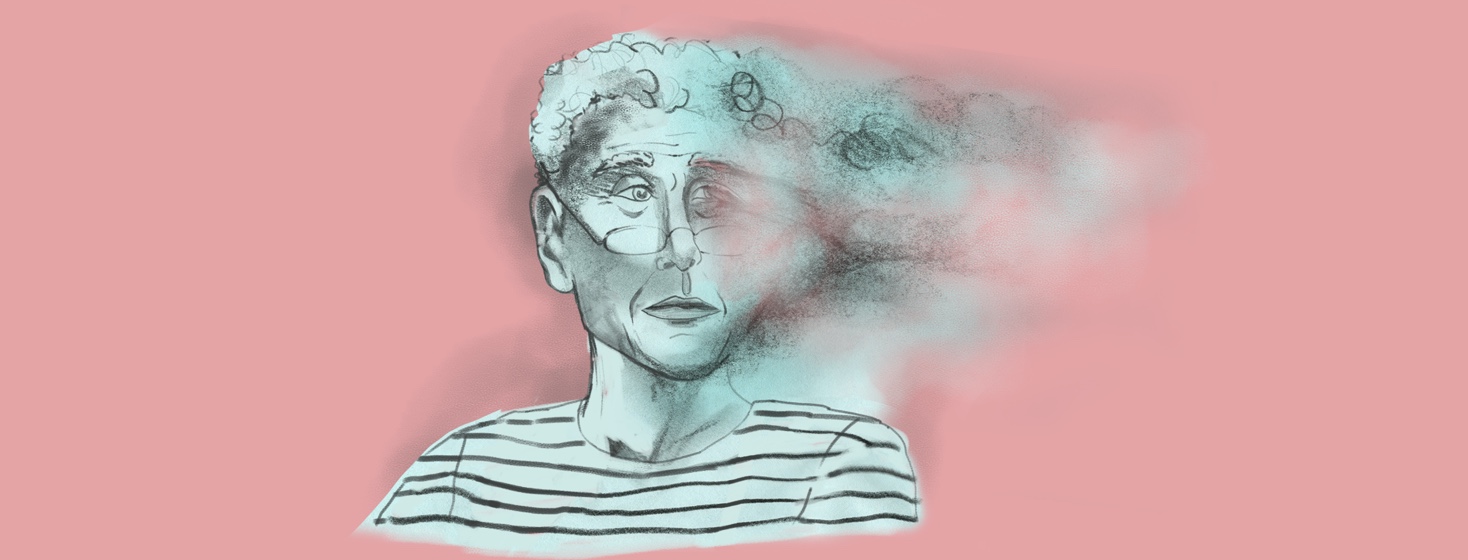The Slow Goodbye: Grieving for the Living
When I speak about Alzheimer’s disease to individuals who don’t know about it firsthand, I tell them it’s losing your loved one bit by bit, slowly over time, until the very end. They are just words. As an editor by profession, that’s a big statement for me. Under normal circumstances, I believe words are quite powerful. But in this instance, they are a far cry from the emotional turmoil that comes with grieving for the living.
Grief starts small
My grieving started with a shallow cut inflicted when I was having excellent conversations with my grandparents. Poppop would be in the middle of a story. My Gram and I would patiently wait around the kitchen table for him to attempt to grab it. And then, the look in those blue eyes when he knew it was gone. It was a look of sheer defeat of this titan of a human in my life. I hope that the brave face I had, the smile and the up-beat, “It’s OK Pop, it’ll come to you,” was sufficient enough to mask my own pain.
Grief grows with repetition
My grief would peak annually. You see Poppop is my birthday buddy, mine is May 8 and his is May 7. When I was growing up we’d share a cake and ice cream. In the years Poppop fought Alzheimer’s I was largely not in the same location as he was, either at college or my first job in another city.
I remember the last time I made the birthday call, I had been avoiding it, knowing it would hurt. It followed the same script, “Hey old timer, happy birthday! Are you enjoying your day?” “O hello! Well, I’ve just been down to Tomlinson’s to get my measurements.” That’s the funeral home; measurements for his casket, he would say in jest.
I was used to that line, but this time he continued on to say he wasn’t sure how much more time he’d be here. I was leaving a Target (retail therapy). I was flooded with tears and I attempted to clear my throat to tell him, “Well, I really appreciate you sticking around to share one more birthday with me.”
He spent a few more birthdays with me, but a combination of my being in the same space and his loss of consistent speech aided me in my decision not to call on his birthday anymore. I was grateful for every one we had.
Eventually, the grief is unbearable
Through a series of less than ideal caretaking situations, including the loss of my Grandmother, it became easier to avoid visits. By that I mean it was easier for me not to have to confront my loss. My titan became skin and bones, my gregarious patriarch a mute witness, my demanding authoritarian an afterthought of his loved ones talking around him.
Every once in a while, I’d be brave enough to visit and I’d be rewarded with a glimpse of my Pop. Never will I ever forget the knowing look he gave me as I full-belly laughed at I don’t even remember what. He hadn’t been participating in the conversation, but that laugh brought him back and I swear he knew my soul at that moment.
We all have these stories. The loved ones of more than 5 million Americans know exactly what it’s like to lose their person like flower petals to the wind. On the hard days, that company makes it a little bit easier.

Join the conversation